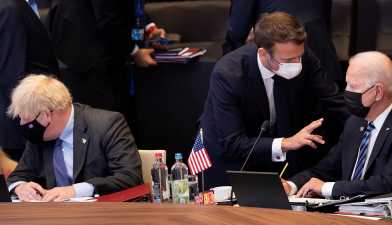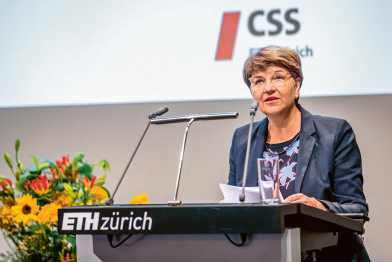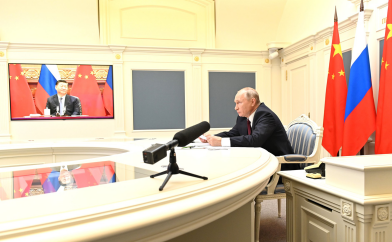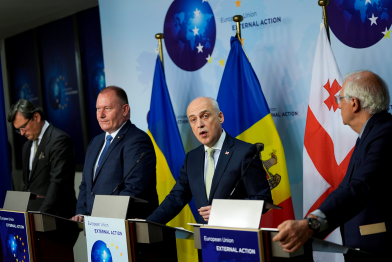11
Sicherheitspolitische Trends 2022–2030: Grossmächtekonflikt und Technologiewettbewerb

Every year, the CSS analyzes developments in world politics and their potential consequences for Switzerland over the next eight years. This year, we focus on great-power conflicts and technology competition.
The Role of Value Systems in Conflict Resolution

Understanding, “right-sizing,” and adequately respecting the role of value systems in conflict transformation avoids both over- and under-emphasis. It aims at a better understanding of the interplay between tangible conflict issues and religious or secular value systems, argue Abbas Aroua, Jean-Nicolas Bitter and Simon J. A. Mason in this CSS Policy Perspective.
Redesigning Nuclear Arms Control for New Realities

Nuclear arms control is more needed than ever. Building an arms control architecture that is fit for today’s security challenges requires a coherent, innovative, and long-term political strategy. A coordinated transatlantic approach for such a strategy is necessary to help redesign nuclear arms control for new realities, argue Anna Péczeli, Brad Roberts, Jonas Schneider, Adam Thomson, Oliver Thränert, and Heather Williams in this CSS Policy Perspective Special Edition.
Swiss security policy in an unstable world

During her visit to ETH Zurich, Defence Minister Viola Amherd sketched a picture of an unstable, unpredictable world to which Swiss security policy must adapt. ETH Zurich and EPFL make an important contribution to the security of Switzerland by training specialist personnel and facilitating knowledge transfer.
The Taliban Takeover and China-Russia Relations

The Taliban’s takeover of Afghanistan could serve as an important test for relations between China and Russia. The emerging situation could stimulate increased bilateral cooperation, including in regional security affairs, but it could also create challenges for the relationship. The outcome will affect the dynamics of China-Russia relations in both Central Asia and South Asia, argues Brian G. Carlson in this CSS Analysis.
Ukraine, Georgia and Moldova between Russia and the West

The three countries over the past five years have benefitted from increased trade with the EU, without however strengthening the rule of law to boost investments and lift them out of economic stagnation. The elites remain unwilling or unable to break vested interests, despite the pressure exercised by the Western actors, and partly because of Russian attempts to counterbalance or undermine pro-Western forces, argues Henrik Larsen in this CSS Analysis.